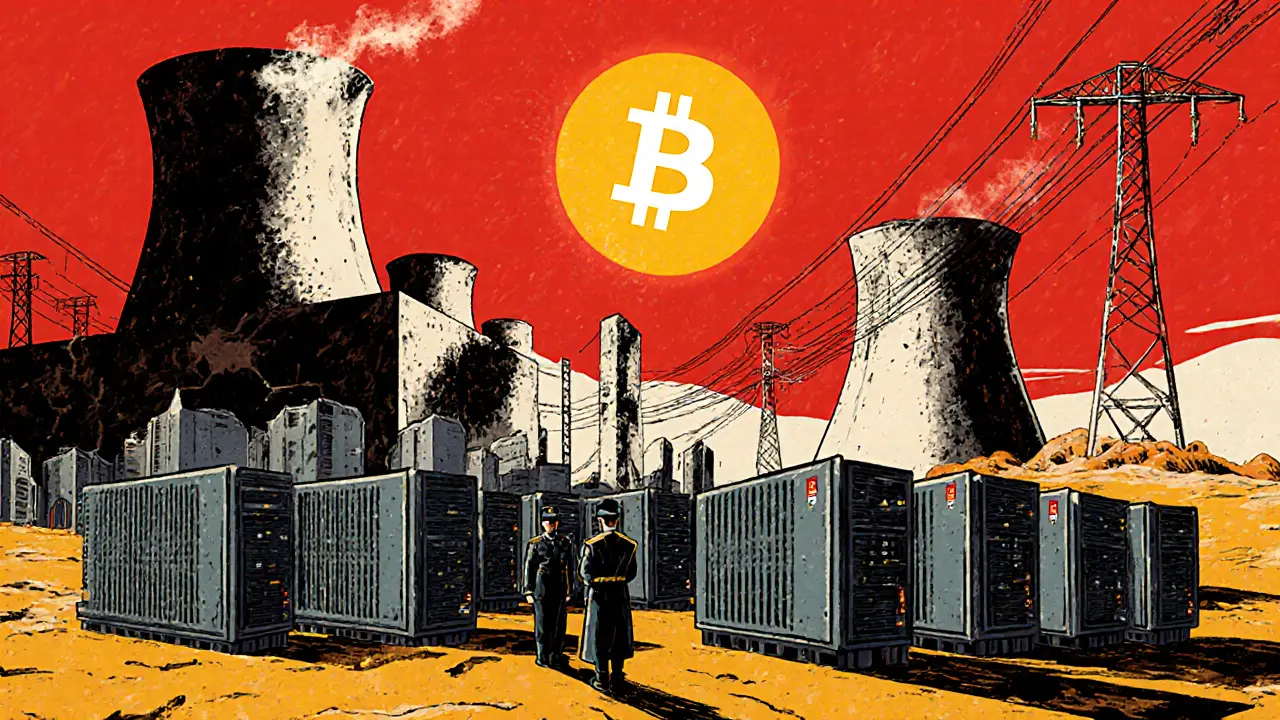
Iran has turned its excess electricity into a billion-dollar crypto lifeline, using Bitcoin mining to bypass U.S. sanctions and fund its economy-despite blackouts, inequality, and international pressure.
When governments try to block access to cryptocurrency, people don’t just give up—they adapt. Crypto sanctions evasion, the practice of using decentralized digital assets to move value despite government restrictions. Also known as crypto censorship resistance, it’s not about breaking the law for fun—it’s about survival, trade, and financial freedom in places where banks won’t help. This isn’t theoretical. In Nigeria, after banks were banned from handling crypto in 2021, millions kept trading using WhatsApp, Telegram, and peer-to-peer platforms like Binance P2P. They didn’t need a bank account. They just needed a phone and a wallet.
Similar stories happened in Iran, Russia, and now Thailand, where foreign P2P platforms were shut down in 2025. People didn’t stop trading—they switched to local exchanges, cash-in-hand deals, or even crypto-to-gift-card swaps. P2P crypto trading, direct person-to-person exchanges without intermediaries became the backbone of underground crypto economies. It’s fast, anonymous, and hard to stop. No central authority controls it. No bank can freeze your funds if you’re trading directly with someone across the street or across the border.
What makes this possible? Blockchain censorship resistance, the built-in feature of decentralized ledgers that prevents any single entity from blocking transactions. Unlike traditional banking, where a government can order a freeze, crypto transactions only need a network of nodes to confirm them. Even if one country blocks access, users can still connect through VPNs, Tor, or satellite internet. Tools like non-KYC wallets and decentralized exchanges make it even easier. You don’t need permission. You don’t need to prove who you are. You just need the right knowledge.
And it’s not just about avoiding sanctions. It’s about access. In countries with unstable currencies or restricted banking, crypto isn’t a luxury—it’s a lifeline. People use it to pay for medicine, send remittances, or buy food when local banks won’t let them withdraw cash. The same tech that lets someone in Nigeria trade Bitcoin with a trader in Ghana is the same tech that lets someone in Ukraine receive aid when traditional channels fail.
What you’ll find in the posts below aren’t abstract theories. They’re real cases. How Nigeria’s underground crypto market grew bigger than most official ones. Why Thailand’s ban didn’t stop trading—it just pushed it deeper. How people use Telegram groups and local cash meetups to move value without leaving a trail. You’ll see the tools they use, the mistakes they avoid, and the risks they take. No hype. No fluff. Just what’s actually happening when governments try to control money that wasn’t designed to be controlled.

Iran has turned its excess electricity into a billion-dollar crypto lifeline, using Bitcoin mining to bypass U.S. sanctions and fund its economy-despite blackouts, inequality, and international pressure.